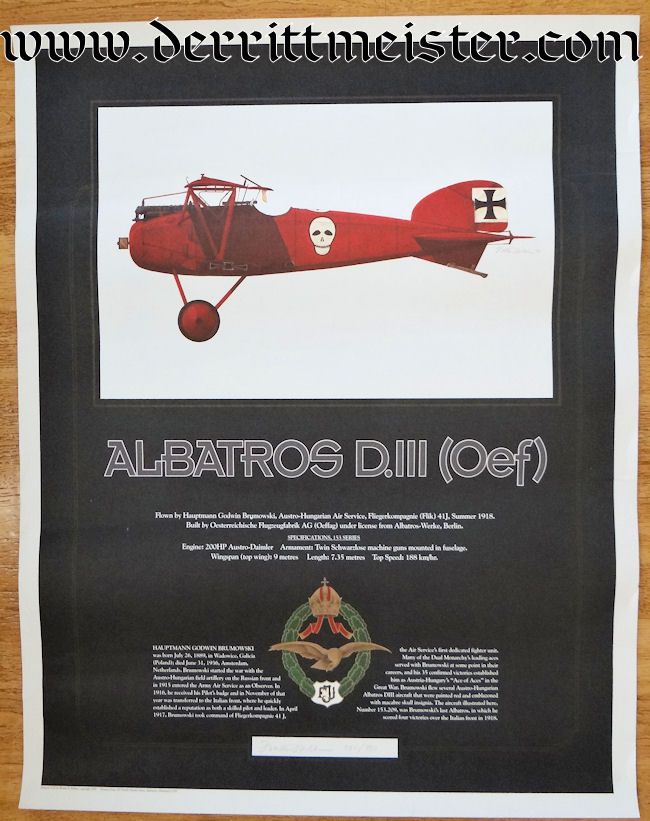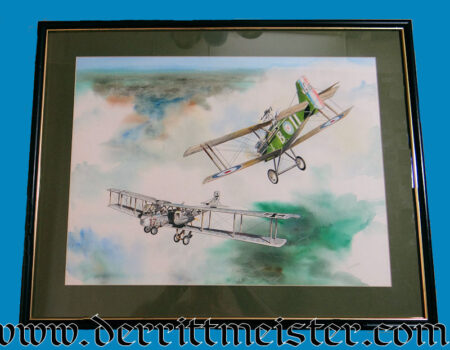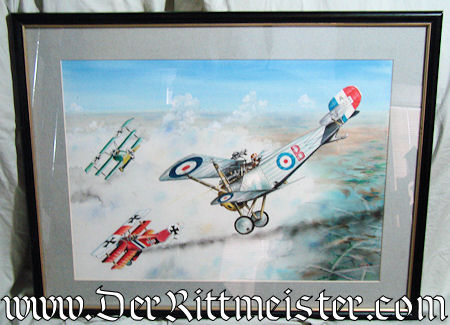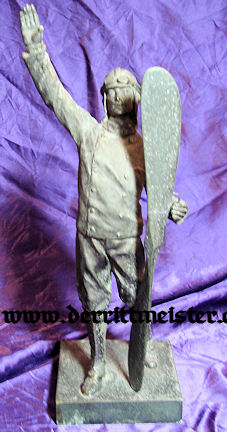Description
The leading ace of Austria-Hungary was Hauptmann Goodwin Brumowski, with thirty-five confirmed victories. Our offering today is a full color poster that measures 23″ x 18″ It describes Brumowski’s career and features a likeness of the last airplane he flew during the war. The depiction’s central theme is a profile view of the Albatros D. III (OEF) that Brumowski flew at the war’s end. The airplane is a vivid red and black, with a macabre white skull. Below the airplane we see a large Austrian Field Pilot badge with information about Brumowski’s career. The limited-edition print is signed and numbered by its artist. It is poster number 551/950. [When I was doing research on this flyer, I read a story that describes his no-nonsense attitude. He was being put forward for the highest military medal that Austria could offer. The usual practice was for nominee-designate to apply to a generaloberst for the medal. He wrote back that he would not do so. He went on to say that if his conduct and performance merited the award, HE felt no need to ask for it. The story’s end is that he NEVER did receive the decoration. He was quite a strong-willed individual, don’t you think?]




